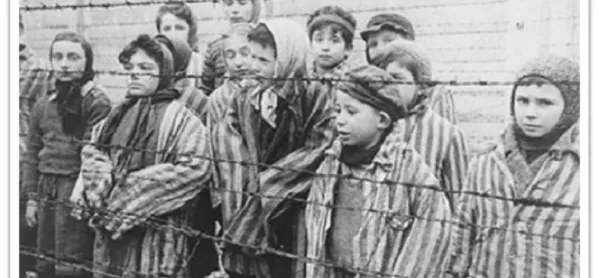It seems almost impossible to imagine now, but when the Holocaust Educational Trust was founded in 1988, Holocaust education was almost non-existent in British schools.
We have come a long way since then: the Holocaust has been included on the history national curriculum at key stage 3 since the curriculum’s introduction in 1991.
More than 100,000 young people a year hear a Holocaust survivor give their testimony through our outreach programme. There are fantastic teacher-training opportunities and classroom resources; and, every year, 3,000 students and teachers visit Auschwitz through our Lessons from Auschwitz Project, which aims to increase knowledge and understanding of the Holocaust based on the premise that “hearing is not like seeing”.
In short, Holocaust education is firmly embedded within the British education system. Moreover, as recently shown in comprehensive research by the UCL Centre for Holocaust Education, young people want to learn about the Holocaust, and consider it important to do so.
It was in this context that this week I gave evidence to the education select committee’s inquiry on Holocaust education. The inquiry is timely, as the Holocaust moves from living history to just history, and as the prime minister’s Holocaust Commission’s recommendations to create a national Holocaust memorial and learning centre take shape.
So far, so good.
Yet despite excellent efforts across Britain to ensure that the next generation learns about the Holocaust, we are acutely aware that our work is not done. There are still teachers who don’t feel equipped or supported in this most complex of subjects. Working with teachers “on the ground”, we know about the pressures to find sufficient time and training. Which is why, this week, I suggested we do all we can to support schools in delivering the best Holocaust education possible.
This means encouraging schools to prioritise history as a subject, with clear recommendations on the time required to teach the Holocaust. It means ensuring that study of the Holocaust be in the later stages of key stage 3, and not compressed, given the intellectual and emotional demands of the subject. And it means incentivising schools to develop cross-curricular schemes of work centred around history but embracing other relevant subjects, with opportunities for all teachers to access specialist training and support.
It also means investing in the next generation - above all in our Ambassador Programme, which enables impassioned young people across Britain who are committed to preserving the legacy of the Holocaust to reach their peers and communities.
We are fortunate that there is so much support for quality Holocaust education in this country - from teachers, young people and politicians. We know there are thousands more to reach, but, with the right support, we will ensure that no young person is ignorant of the darkest period of our history.
Karen Pollock is chief Executive of the Holocaust Educational Trust
Want to keep up with the latest education news and opinion? Follow TES on Twitter and like TES on Facebook

